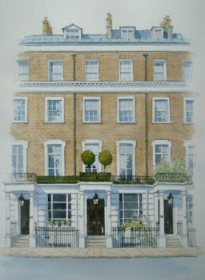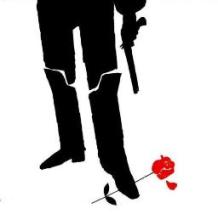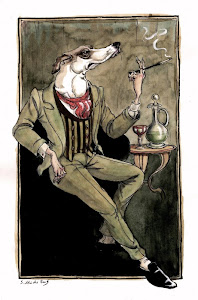 It is turning out to be a very Royal season. First there was the wedding of William and Kate. Zara Phillips's wedding follows in July. And to be published shortly are two new biographies, the first one of Wallis Simpson, Duchess of Windsor, and the other one of Prince Philip, Duke of Edinburgh (at left). The narrative of Prince Philip's early life tends to be obscured by the unceasing hostility and hysterical hate-campaign directed at him by the modern tabloid establishment. But no matter: he stands apart and endures, a lesson to us all. He is easily one of the most appealing members of the Royal Family, largely due to his wit, outspokenness, dress sense, and classic hairstyle, at least for me, as well as the unique challenges faced as a young man. But of course there is much more to it than that, as Philip Eade reveals in his new book. From Peter Oborne's column in The Daily Telegraph last week:
It is turning out to be a very Royal season. First there was the wedding of William and Kate. Zara Phillips's wedding follows in July. And to be published shortly are two new biographies, the first one of Wallis Simpson, Duchess of Windsor, and the other one of Prince Philip, Duke of Edinburgh (at left). The narrative of Prince Philip's early life tends to be obscured by the unceasing hostility and hysterical hate-campaign directed at him by the modern tabloid establishment. But no matter: he stands apart and endures, a lesson to us all. He is easily one of the most appealing members of the Royal Family, largely due to his wit, outspokenness, dress sense, and classic hairstyle, at least for me, as well as the unique challenges faced as a young man. But of course there is much more to it than that, as Philip Eade reveals in his new book. From Peter Oborne's column in The Daily Telegraph last week:The colossal importance of the Duke of Edinburgh, who celebrates his 90th birthday next week, is that he has defied the spirit of his time. This is why, for most of his adult life, he has been forced to endure such hostility and contempt. In the 1960s, satirists portrayed him as a member of a bankrupt establishment. The state socialists who ran Britain in the 1970s despised the Duke as a symbol of ruling-class domination. The New Right that came to power in the 1980s could not understand him at all. He was not for sale, he was not efficient, and he was not driven by the profit motive, yet he could not really be classified as part of the public sector. He appeared to have no purpose.
It is very easy to say what he stands for: duty, service, discretion, kindness, concern, eccentricity. His commitment to the cause has been exemplary. Until last year, when he cut down for health reasons, he was still carrying out well over 300 engagements a year. No wonder the political and media classes that have gradually taken control of Britain over the past few decades have so much contempt for the Duke. Disinterested public service fits in neither with the Right-wing narrative of private enterprise nor New Labour’s conception of a centralised, domineering political class.





















9 comments:
Monarchy offers the people something beyond the political...I will probably get this book.
Marvellous.
Duty, service, discretion, kindness, concern, eccentricity. All the things political prostitutes of our time doesn't understand. Thank for the tip, I'll definitly get this book.
I will order this immediately, and look forward to reading it. I am reminded of the series that ran on PBS twenty or so years ago chronicling the life of Prince Philip's cousin, Lord Mountbatten. A remarkable man, and I believe a strong influence on both Prince Philip and his son, Prince Charles. Thanks for the recommendation, Fogey.
The following is meant sincerely... no hipster irony here:
I really like your work (with obvious exceptions)... but is this really you or is it a persona? When you provoke people with politically incorrect invective, are you just "taking the piss" or do you mean it?
Thanks for the book recommendation. I've been reading your posts since the early days. Oddly, some of your early posts about women disappeared. While not family fare, they were well written and conveyed that character that a man develops when he looks back on his earlier life.
Though not popular with the politically correct, your factual observations about how progressive socialists tend to destroy their own societies are spot on. Thank you for having the courage to speak up.
I believe Dickie Mountbatten was Prince Philip's uncle, but I suppose he may well have been his cousin as well; those fellows were all as interrelated as an Appalachian village.
P.S. Is this an example of 'Igentism'?
on my summer reading list.
Admiral, The Duke is hugely under-estimated, under-rated, under-appreciated and mis-understood. It's heartening to see this unusual and unconventional man is finally being recognised and given the respect and admiration he deserves.
Post a Comment